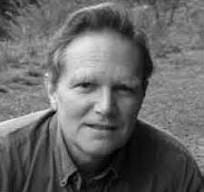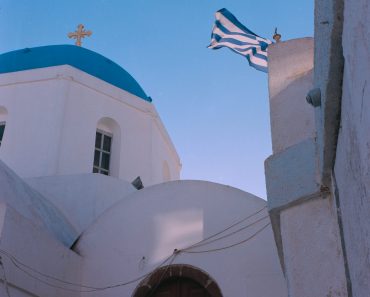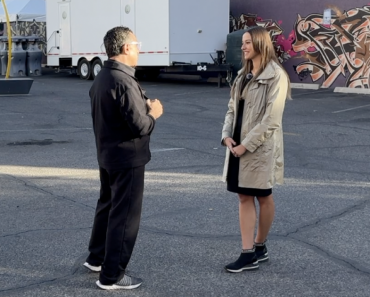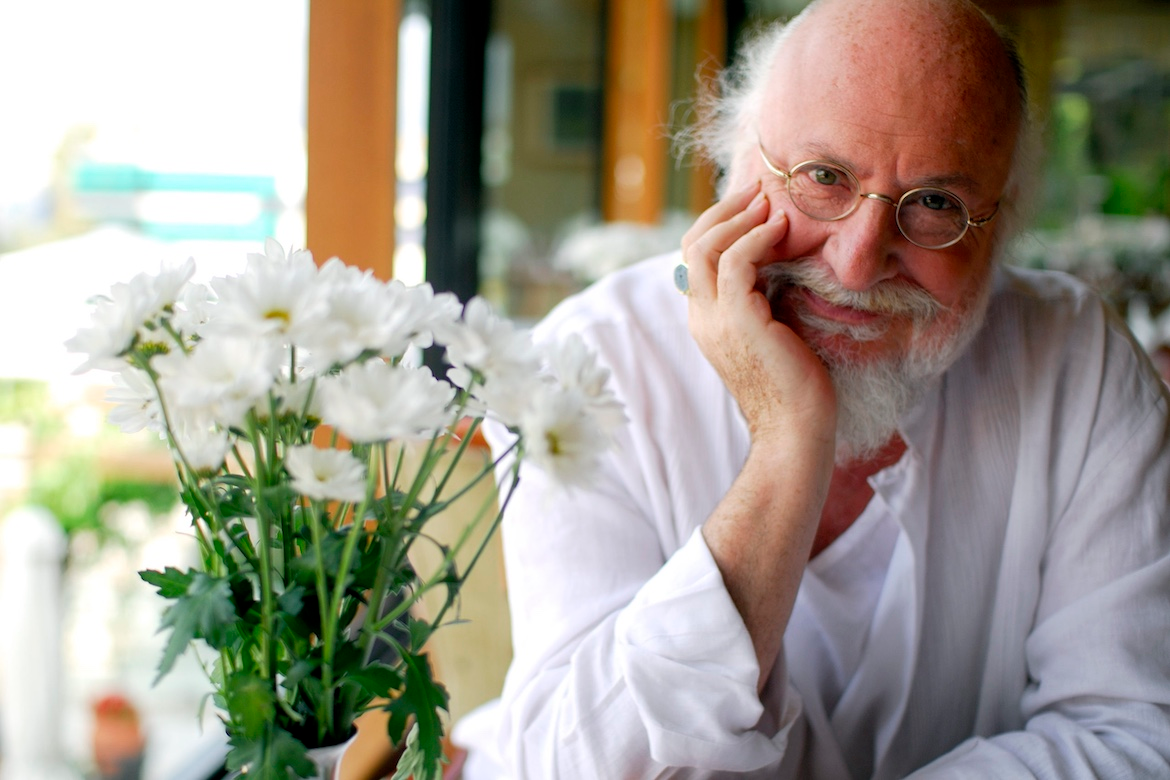There is no doubt that Bob Dylan, singer, songwriter, lyricist, performer, novelist, memoirist, artist, has had a decades-long relationship with the literary, taking influence and inspiration from a wide array of writers and novelists, poets and storytellers, from many different traditions stretching across several eons.
His close relationship with the Beats has been frequently flagged in these digital pages, of course, not to mention by well-respected biographers and other commentators – from Shelton to Gray, Williams to Heylin and Wilentz – homing in on the impact that Kerouac, Ginsberg, Burroughs and their fellow journeymen had on Dylan and his artistic output.
Not everyone though has been convinced by the value of this particular connection. Harvard Classics professor Richard F. Thomas appears hardly conscious of it. His book-length study Why Dylan Matters pinpoints numerous creators of fiction over millennia who have shaped the singer’s oeuvre yet pays scant attention to the Beat circle. In fact, it feels closer to a snub.
While Greeks and Romans, Homer and Aeschylus to Horace and Cicero, French Symbolists such as Verlaine and Rimbaud, great American novelists like Twain and Melville plus twentieth-century poets Eliot and Pound, are all foregrounded, the Beats lurk only in the shadows of this history.
They get one grudging mention quite early on only because some of them had read Latin lyricist Catullus. Then Thomas talks about Dylan’s attraction, during the mid-1960s, to the nineteenth-century Symbolists because he ‘had no real models in what he was doing with his lyrics and his music in these years.’ He adds somewhat pointedly: ‘The Beats were now more or less a thing of the past, at least on the way out…’
Pictured above: Harvard Classics professor Richard F. Thomas
Kerouac makes no appearance in the index and, if you’re after Burroughs, the best you will get is a listing for Tarzan creator Edgar Rice Burroughs. Ginsberg flickers tantalisingly but only momentarily when Dylan mentions Kaddish positively in a quotation, but the next time that poet crops up, late in the text, it is merely linked to his efforts to put Dylan in the frame for the Nobel award.
I would argue firmly against Thomas’ sidelining of a Beat presence in that 2017 overview but I would acknowledge, too, that if Dylan is to be considered a credible player in the great sweep of literature rather than merely popular music giant, his citations have to extend beyond just On the Road and ‘Howl’ and Naked Lunch.
The 2016 award of the Nobel Prize in Literature to Dylan, was surely confirmation enough, the ultimate accolade indeed, one that placed this individual talent at the heart of the long tradition of Western, indeed global letters, a topic which Thomas does address, and supportively, in his book.
Pictured above: Professor Gordon Ball, Dylan advocate and Ginsberg’s friend. Image: Dave Hess
In the meantime, and in a fortnight when the Hungarian novelist László Krasznahorkai clinched the 2025 version of the prize, please consider this briefly-made case an overture to an essay by another English professsor, the American Gordon Ball.
A close friend of Ginsberg, he was, as a don with a progressive view of these issues, among the first to seriously propose Dylan’s case in the Nobel stakes. And I am pleased to confirm that Thomas does credit Ball as a significant contributor to a twenty-year journey between initial nominations filed in 1996 and the eventual crowning in Stockholm.
Ball’s fascinating account of the prize’s governing criteria and his arguments in favour of Dylan’s eligibility are presented in full here, in an article originally published in 2012. The Beats do get more than a passing mention, I am happy to report…
______________________________________________________________________
‘A Nobel for Dylan?’
by Gordon Ball
FOR DECADES I’ve admired the work of Bob Dylan, whom I saw at Newport 1965; my memoir ‘66 Frames relates first contact with his music, and he has a small cameo in my chronicle of years on a farm with Allen Ginsberg and others.
In August 1996 I first wrote the Nobel Committee, nominating Dylan for its literature prize. The idea to do so originated not with me but with two Dylan aficionados in Norway, journalist Reidar Indrebø and attorney Gunnar Lunde, who had recently written Ginsberg about a Nobel for Dylan. Ginsberg’s office then asked if I’d write a nominating letter. (Nominators must be professors of literature or linguistics, past Laureates, Presidents of national writers’ groups, or members of the Swedish Academy or similar groups.) Over the next few months several other professors, including Stephen Scobie, Daniel Karlin, and Betsy Bowden, endorsed Dylan for the Nobel.
Examining Prize criteria, I learned that Alfred Nobel’s 1895 will specified that in literature the work must be ‘“the most outstanding…of an idealistic tendency”’; and that ‘“during the preceding year”’ the honorée must ‘“have conferred the greatest benefit on mankind”’ (Frenz, Introduction VII). As Horst Frenz reports in Nobel Lectures: Literature, the second stipulation was interpreted by Nobel Foundation statutes ‘to mean that awards should be made “for the most recent achievements in the field of culture” and that older works should be considered only in cases where their importance “has not become apparent until recently”’ (Introduction VII).
However, a review of awards and their presentation statements since 1901 suggests considerable latitude in terms of recent achievement and revised appreciation of earlier work. While some Nobel presentations focus more on an author’s latest creation (or, as with Faulkner, on a new view of his entire oeuvre) others seem to take in a whole career. In the case of Icelandic novelist Halldor Laxness (1955), the most recent work cited was published nine years earlier. T.S. Eliot was over a quarter century removed from The Waste Land when he received his Nobel recognition.
Though a recent statement from the Swedish Academy emphasizes literary and artistic values (Allén and Espmark 47), in the earliest years Nobel’s ‘idealistic tendency’ was taken to mean that it was ‘not primarily a literary prize’ but also one recognizing elevating views of humanity (Espmark 10). However, the senses of ‘idealistic tendency’ have varied greatly over time, and have even included ‘uncompromising integrity in the description of the human predicament’ (Allén and Espmark 47).
Few would challenge Bob Dylan’s ‘uncompromising integrity’ in depicting the ‘human predicament’’ Yet many may ask whether the Nobel Committee should break with perceived tradition for a writer and performer of song. Is Dylan’s work truly of sufficient literary quality to join that of time-honored masters of the pen? Can an icon of popular culture, a ‘song and dance man’, stand shoulder-to-shoulder with literary giants? Bobby Zimmerman alongside Jean-Paul Sartre, Albert Camus and Gunter Grass?
In 1900 Nobel statutes defined ‘“literature”’ as ‘“not only belles-lettres, but also other writings which, by virtue of their form and style, possess literary value”’ (Espmark 4). In fact, music and poetry have been historically linked, and Dylan’s work has helped renew that vital connection. The art of poetry is thousands of years old; it began in performance and has survived in good part on oral strengths, less through the rather recent convenience of moveable type. In our era Bob Dylan has helped return poetry to its primordial transmission by human breath; he’s revived traditions of bard, minstrel, troubadour.
This vital connection between music and poetry had been weakened, at least in the United States, from the 1930s into the 1960s by New Critical emphasis on poem as written text to be explicated, de-emphasizing orality. In revitalizing this relationship it’s as if Dylan had heeded Ezra Pound’s observation that
…both in Greece and in Provence the poetry attained its highest rhythmic and metrical brilliance at times when the arts of verse and music were most closely knit together, when each thing done by the poet had some definite musical urge or necessity bound up within it. (‘The Tradition’ 91)
And Pound referred to poetry and music as ‘twin arts’ (91). Greek lyric poetry is said to have been sung and accompanied; indeed, even the figure of Homer singing with harp or lyre (as some conceive) may not be as distant from the blue-eyed son prophesying with his guitar as the millennia between them suggest. For Pound, so important was the musical aspect of verse that he proposed:
For practical contact with all past poetry that was actually sung in its own day I suggest that…universities combine in employing a couple of singers who understand the meanings of words…. A half-dozen hours spent in listening to the lyrics actually performed would give the student more knowledge…than a year’s work in philology. (‘How to Read’ 39)
Needless to say, I don’t mean to suggest that the Greek ‘singer of tales’ and ‘the vagabond who’s rapping at your door’ share an interchangeable identity. Homer was an epic poet; Dylan can be seen as a lyrical one. The music we might associate with the entity or consciousness called Homer may have been more elemental: perhaps he intoned, rather than sang; translator Robert Fitzgerald claims not to know the precise relationship between voice and verse and instrument (489). In the view of some scholars, including Robert Fagles and Bernard Knox, Homer ‘may have known a rudimentary form of writing’ (Fagles ix), though Knox allows that Homer ‘probably did sing in performance’ (7). In any case, the link between poetry and music is historic. As W. B. Stanford tells us, ‘In Greek and Roman education music and poetry were kept together in the discipline called mousiké’ (27). He also asserts that ‘Poetry’s earliest name in Greek…primarily meant “song”; and the poet was called a singer…long before he was called a maker….’ (27).
Whether Dylan is first poet or musician is open for debate, as it has been, evidently, in Dylan’s mind. Christopher Ricks (11-12) has demonstrated this with Dylan’s own words. To select, and place in chronological order:
‘The words are just as important as the music. There would be no music without the words.’ (l965)
‘It’s the music that the words are sung to that’s important.’ (1968)
‘It ain’t the melodies that’re important man, it’s the words.’ (197l)
‘I consider myself a poet first and a musician second.’ (1978)
My point, then, is rather modest: poetry and music share time-honored ground, are often bound closely together, and Dylan’s great gifts may be appreciated within such a performative lineage.
Moreover, some Nobel awards have demonstrated that media overlap and merge, yet deserve this highest recognition. The Prize has gone to nine dramatists, whose work depends on performance by others skilled in a mixed media range of arts and crafts: lighting, acting, set design, music, dance. Even the literature prize to Sir Winston Churchill – one of two historians to win it – was awarded in part for his ‘“brilliant oratory”’ (Frenz, Nobel Lectures 487).
In l997 the Nobel went to Dario Fo. Some observations by Burton Feldman in The Nobel Prize: A History of Genius, Controversy, and Prestige may apply:
…many consider [Fo] not a dramatist but a writer of scripts for his own performances. He is a vivid and popular actor of farce and satire….In each performance he improvises at will, so that his scripts are never quite available in permanent form, but remain prompt-books. He is the first postmodern ‘playwright’ – or performance artist – in the Nobel list. (87)
Idealism and benefitting humanity often, of course, move hand in hand, and Dylan’s idealistic, activist songs have helped change our world. His 1963 Tom Paine Award (An earlier recipient, Bertrand Russell, was one of three philosphers—not counting Sartre—to win the Nobel in Literature.) came after ‘Blowin’ in the Wind’, ‘Oxford Town’, and other works, as well as his going South for voter registration (‘In the days when you could get shot for it.’ said Mississippi novelist Barry Hannah [283].) An attitude in his 1965 ‘It’s Alright, Ma (I’m Only Bleeding)’ – ‘…even the President of the United States / sometimes must have / to stand naked’ (Lyrics 157)—may have helped revise our view of presidential authority, encouraging inquiry into what became Watergate.
For a generation raised in conformity, Dylan validated imagination and independence of thought; his work was central to the creativity of the 1960s in the U.S., and has affected others elsewhere. Asked if growing up in Germany he had an ‘American dream’, German Foreign Minister Joschka Fischer replied ‘“Not an American dream, but my very own dream of freedom. That was for me the music of Bob Dylan”’ (qtd. in Noack 33).
Nor has Dylan’s idealism been wholly confined to one period, as later songs have shown: the sentimental fatherly idealism of ‘Forever Young’; the extraordinary songs of religious idealism such as ‘Every Grain of Sand’; the expression of an aesthetic ideal – against a torched historical landscape – in the brilliant but fated blues singer Blind Willie McTell, who would recognize that ‘…power and greed and corruptible seed / Seem to be all that there is’ (Lyrics 478); the search for a classical character trait, ‘Dignity’. And if I may offer a personal example: here at VMI, trudging along in uniform past fortress-like barracks, returning salutes from cadets, I have of a sudden heard a haunting familiar voice from far away and behind the wall, calling for a new world of human possibility.
To return to the relationship of poetry and music, and Dylan’s literary value: Rabindranath Tagore, Nobel winner in l9l3, set many of his own poems to music. Yeats, quoting a Bengali speaker as he introduced Tagore’s Gitanjali, reported, ‘“He is as great in music as in poetry, and his songs are sung from the west of India into Burmah wherever Bengali is spoken”’ (viii). And the 1923 award to Yeats himself noted that in his verse ‘There is a greater element of song than is usual in modern English poetry’ (Hallstrom 196).
If there is, thus, recognition of this linkage of poetry and music in the case of past Nobel winners, we might ask whether Dylan’s works – on the page – can rest companionably with enshrined works of literature. The answer is decidedly positive. Dylan’s ability to evoke an entire milieu with a few swift words is reminiscent of Chekhov. The opening of ‘Just Like a Woman’ with its suggestion of a whole social scene (‘Nobody feels any pain / Tonight as I stand inside the rain’ [Lyrics 202]) brings to my mind that of ‘Lady with a Dog’: ‘A new person, it was said, had appeared on the esplanade…’ (412). Dylan’s view of life as a journey, as well as his assuming the role of prophet or voyant, recalls visionary Arthur Rimbaud. And his prophecy has been borne out time and again. Consider a line from ‘A Hard Rain’s A-Gonna Fall’ in terms of recent conditions here: ‘I saw guns and sharp swords in the hands of young children’ (Lyrics 59). And across our planet: ‘Where the pellets of poison are flooding their waters’ (Lyrics 60).
Dylan’s eclecticism and inventiveness can be compared to Yeats. That is, in Yeats Celtic and English coalesce; in Dylan linguistic and musical idioms of ancient folk music and contemporary rock and roll become as one: in Bob Dylan, Scots balladeers meet Little Richard. That his imagery resists numerous attempts at schematization by hosts of scholars (‘“People dissect my songs like rabbits’, he once remarked (qtd. in Brown) testifies to its power as poetry.
In examining the human condition Dylan can be as grim and unappeasing as William Faulkner; indeed, much of his work (‘Visions of Johanna’, ‘Most of the Time’) shows ‘the human heart in conflict with itself’ that Faulkner, receiving his Nobel, required for ‘good writing’ (Faulkner 444). Surely his experimentalism and variety are as rich as Faulkner’s: love songs of bittersweet poignancy (‘Most of the Time’) and shocking realism (‘Ballad in Plain D’); stark indictments of human nature (‘I Dreamed I Saw St. Augustine’); adaptations of earlier songs, including ‘A Hard Rain’s A-Gonna Fall’, that inspired revision of ‘Lord Randall’. There are works that seem foremost aesthetic, or about the power of art, such as ‘Mr. Tambourine Man’; there are songs of wisdom (‘My Back Pages’) and, as we’ve noted, from the beginning, songs of social protest, songs of prophecy.
One of Bob Dylan’s recent releases, so to speak, is Chronicles, the first in a three-volume series of personal recollections – and finalist for the 2005 National Book Critics Prize in Biography and Memoir, winner of the 2005 Quill Book Award in biography/memoir. I know a little about memoirs; I’ve read a few, and have published two. And so I was intrigued to learn of Dylan’s, eager to examine it with certain basic questions in mind. Will I find the obfuscation that colored certain earlier autobiographical depictions of his life, especially in interviews? Will someone who not merely seems to value but cherish privacy reveal anything of significance? He’s invited familiarity in ‘You may call me Bobby, you may call me Zimmy’ (Lyrics 402)—but in song, where we recognize the principle of persona. In memoir, we may like to think, we can get closer to truth.
Overall, I find the value of Chronicles extraordinary. Though true to form Dylan denies being ‘the conscience of a generation’ (115), here are accounts from the whirlwind’s center: the unknown nineteen-year old from the provinces driven by a sense of destiny into the heart of New York’s folk music scene; the star in his late twenties, hostage to fame, shocked when asked by Robbie Robertson ‘“Where do you think you’re gonna take…the whole music scene”’ (117).
Those early days are vividly recalled in Chronicles: his reading Thucydides’ Athenian General, ‘which would give you chills’ (36); Mike Seeger, ‘the supreme archetype’ folk musician who ‘could push a stake through Dracula’s black heart’ (169); how ‘the bells went off’ when first he read Rimbaud’s formulation of the unstable nature of the self – ‘Je est un autre’ (288).
Along with his oratory, the 1953 Nobel award cited Churchill for his ‘mastery of historical and biographical description’ (Frenz, Nobel Lectures 487); perhaps Dylan’s three volumes*, when completed, will constitute a lasting and complex personal, historically central, and cultural record that only this individual could offer. As the Nobel presentation to Churchill claimed, ‘…there is something special about history written by a man who has himself helped to make it’.
Having sketched some of the idealism and benefits to humanity in the works of Mr. Dylan; having considered them within the context of poetry; having brought his lyrics shoulder-to-shoulder with literary masters and examined his most recent publication in light of an earlier Prize; we might note one other concern associated with the awarding of a Nobel: that the work so honored meets the test of experience or examination of experts (Nobel Foundation). Dylan, of course, has satisfied both criteria.
As for the former, it is apparent today that Dylan’s work has not merely survived the course of forty-eight years, but – as Faulkner in Stockholm 1950 predicted of mankind (qtd. in Frenz, Nobel lectures 445) – it has prevailed. Just a few of the countless indications: the 1996 adaptation of ‘Knockin’ on Heaven’s Door’ by a Scottish anti-gun campaign; Dylan’s performance for the Pope and 300,000 others in 1997, with John Paul quoting from a Dylan song already then a quarter century old; Dylan’s appearance on a major American news magazine interview program in 2004, with interviewer Ed Bradley insisting, despite his guest’s disclaimer, that in the minds of many he’s been gifted with special insight on the level of a prophet (Dylan, ‘Interview’). Indeed, one can see that Yeats’ prediction about the future of verses of Tagore (‘…travellers will hum them on the highway and men rowing upon rivers. Lovers…murmuring them’ (xv) has been realized many times over by Dylan.
As for meeting the examination of the experts: various academic textbooks, including the Norton Introduction to Literature (2005) and the Portable Beat Reader (1992), have reproduced his lyrics. The enlarged edition of the Princeton Encyclopedia of Poetry and Poetics included an entry on the ‘Rock Lyric’, where specific songs by Dylan are given as examples of the incorporation of ‘elements of modern poetry’:
Alienation as objectified in a dissociated modern sensibility…Dylan’s ‘Desolation Row’ (which refers specifically to Pound and Eliot)…Surrealism—used…to render a sense of social chaos (Dylan’s ‘Memphis Blues Again’)…Highly complex wordplay and intricate themes: Dylan’s ‘Subterranean Homesick Blues’.
Forty-four years ago, critic Ralph Gleason declared Dylan ‘the first American poet to touch everyone, to hit all walks of life in this great sprawling society’ (28). More recently, Danny Goldberg’s Dispatches from the Culture Wars concluded with a warning to the American Left that demonstrates the timelessness of a Dylan theme: ‘Bob Dylan’s message of four decades ago still works: “You better start swimming or you’ll sink like a stone, for the times they are a changin’”’(312).
Poet Andrei Codrescu once exclaimed, ‘“Dylan? He’s the best living American poet there is, man!”’ (qtd. in Spitzer) In l996, poet and Distinguished Professor Allen Ginsberg told me his works were ‘prolific and memorable, and memorableness is a mark of great poetry’. Proposing him for the Literature prize, Ginsberg wrote:
Bob Dylan is a major American Bard & minstrel of XX Century, whose words have influenced many generations throughout the world. He deserves a Nobel Prize in recognition of his mighty & universal poetic powers.
Returning from India 1963 Ginsberg heard ‘A Hard Rain’ and wept: ‘..the torch,’ he said, ‘had been passed to another generation’ (No Direction Home). In 1971 he wrote, ‘For Dylan’s genius,’ he said, one of his greatest works, “September on Jessore Road.” And Ginsberg – who had begun composing music himself after the Chicago convention l968 – dedicated his 1975 volume of lyrics, First Blues: Rags, Ballads & Harmonium Songs, to ‘Minstrel Guruji [little guru] Bob Dylan.’ Every third line of Dylan’s, he once told me, is one of genius.
The 2000 Polar Music Prize, presented in Stockholm by the King of Sweden, cited Dylan’s ‘musical and poetic brilliance’ (Stig Anderson). Mr. Andrew Motion, British Poet Laureate, has noted ‘“the concentration and surprise of his lyrics…the dramatic sympathy between the words and the music….”’ (qtd. in Kelley 7).
Equally important – and a more direct sign of how Dylan has enriched our collective experience –are the many phrases from his lyrics that have become part of our everyday lexicon: ‘the times they are a-changin’’; ‘…I was so much older then / I’m younger than that now’; ‘Nobody feels any pain.’ According to Professor Daniel Karlin, Dylan ‘“has given more memorable phrases to our language than any comparable figure since Kipling’” (qtd. in Indrebø). Most recently, editor David Lehman, explaining the presence of the lyrics to ‘Desolation Row’ in his Oxford Book of American Poetry, wrote that unlike with ‘Some Enchanted Evening’ and other standards, ‘…the lyrics have an existence apart from the music’ (xix).
The American poet Michael McClure has written, ‘Bob Dylan is a poet; whether he has cherubs in his hair and fairy wings, or feet of clay, he is a poet’ (33). ‘Dylan,’ he explains, ‘has slipped into people’s dream baskets. He has been incorporated into their myths and fantasies’ (34).
Many are the writers who have titled their works with phrases from Dylan, or made dedications to him. For novelist Barry Hannah, author of Yonder Stands Your Orphan, Dylan is ‘a master of spiritual geography’ (283); fiction writer Joyce Carol Oates has dedicated her most frequently reproduced short story, ‘Where Are You Going, Where Have You Been?’ to him; activist publisher Raymond Mungo titled his personal history of the 1960s Famous Long Ago: My Life and Hard Times with Liberation News Service (1970).
Recent years have witnessed a surge of new books on Dylan’s work, including a new edition of Michael Gray’s remarkable exploration, Song and Dance Man III: The Art of Bob Dylan (2000) and Christopher Ricks’s provocative study, Dylan’s Visions of Sin (2003). Though Professor Ricks and I have debated the issue of whether Dylan should be accorded the Nobel, his volume offers, among other things, one of the most extended expositions of Dylan’s poetic gifts I’ve seen. Years ago he reflected (qtd. in Brown):
‘Dylan is an artist of a kind we have very few of now. He is like Shakespeare or Dickens—great writers who communicated across class. He has a Shakespearean size and ambition in the themes he explores and what he achieves. I don’t think there’s a British or American poet today more sensitive and imaginative about how he uses language than Dylan is.’
And Ricks’s summing-up is among the best: ‘“If the question is does anybody use words better than he does, then the answer in my opinion is no’” (qtd. in Glaister).
At this point I’d like to introduce two further considerations: late in 1996, after our Nobel letters were in, Ginsberg remarked, ‘I don’t think Dylan particularly cares about it.’ So, I’d like to offer a little perspective here: Dylan doesn’t have to win the Nobel. He’s won so many accolades and awards, will one more really matter? If he were to win, of course that would occasion joy and celebration for many – possibly even Dylan would be pleased. But with or without a Nobel, his work remains triumphant.
William S. Burroughs once said that the habit of denial, the refusal to acknowledge anything other than an official version of reality, was so strongly ingrained in America several decades ago that if an elephant had mounted the dais at Roosevelt’s inauguration, and made deposits before walking off, it would not have been reported.
In Chronicles, Bob Dylan tells us that:
Things were pretty sleepy on the Americana music scene in the late ‘50s and early ‘60s. Popular radio was at a sort of standstill and filled with empty pleasantries….What I was playing at the time were hard-lipped folk songs with fire and brimstone servings, and you didn’t need to take polls to know that they didn’t match up with anything on the radio, didn’t lend themselves to commercialism…. (5-6)
The songs that affected the young Dylan recently arrived in the Village, as he puts it, ‘…could make you question what you’d always accepted, could litter the landscape with broken hearts, had power of spirit’ (14). ‘Folk songs,’ he recalls, ‘were the way I explored the universe…’ (18). He further stipulates:
Songs about debauched bootleggers, mothers that drowned their own children, Cadillacs that got only five miles to the gallon, floods, union hall fires, darkness and cadavers at the bottom of rivers weren’t for radiophiles. There was nothing easygoing about the folk songs I sang. They weren’t friendly or ripe with mellowness. They didn’t come gently to the shore….They were my preceptor and guide into some altered consciousness of reality….(34)
Dylan was, first in the folk songs he chose, soon and for decades thereafter in songs he composed, singing of ‘real’ things, regardless of ‘official’ or commercial reality. As William Carlos Williams once said of Allen Ginsberg, ‘“he had something to say”’ (qtd. in Breslin 30). That’s been one of Dylan’s great strengths – telling us what we may not want to know or acknowledge; defying the protocol of accepted discourse, whether within the folk song community of the 1960s, or among legions of followers who think they have, as Eliot’s Prufrock worried, gotten him ‘formulated, sprawling on a pin’ (57), ‘pinned and wriggling on the wall’ (58). He has surprised us, he has moved us, he has altered the way we think, feel, speak, and imagine. He has, as the saying goes, moved mountains: helped change the course of history in the United States. He’s not merely a decorative versifier, but a singer of great substance reviving and re-creating some of our most time-honored poetic traditions as he gives us melody matched by matter: he has inspired, enriched, and disquieted us.
To close with some personal perspectives: broadly, literature is aesthetically charged language, and poetry depends on oral performance. Of course there are exceptions and complications and matters of degree, but that’s how I see poetry’s vital core. Though I don’t deny the considerable effect (fortunately) which Ginsberg’s ‘Howl’ has had on the page alone, what’s there may only approximate what’s in the air, in the poet’s – the singer’s – voice. America’s Beat Generation was born overnight, so to speak, at a poetry reading at the center of which was Ginsberg’s first public rendering of ‘Howl’. According to Jack Kerouac’s The Dharma Bums, it was ‘wailed’ by the poet, ‘drunk with arms outspread’ and ‘everybody…yelling ‘Go! Go! Go!’ (like a jam session)’ (14). A decade later, ‘Howl’ did not come alive for me till I heard Ginsberg declaim it.
Poetry and music have shared common ground, from Greeks to Pound to Ginsberg; categorize Dylan’s work as you will, its literary qualities are exceptional; its artful idealism has contributed to major social change, altering and enriching the lives of millions culturally, politically, and aesthetically; the voices acclaiming it are many and distinguished. The Nobel Prize for Literature, which in over a century of being awarded has covered a territory broad and diverse, is a deserved form of recognition for such extraordinary accomplishment.
*Note that Bob Dylan’s Chronicles remains a single volume release only, at least to date – Ed.
Works Cited
Allén, Sture, and Kjell Espmark. The Nobel Prize in Literature: An Introduction. Stockholm: Swedish Academy, 2001.
Booth, Alison, J. Paul Hunter, and Kelly J. Mays, eds. The Norton Introduction to Literature. 9th. Ed. New York: Norton, 2005.
Breslin, James E. B. ‘The Presence of Williams in Contemporary Poetry.’ In Something to Say: William Carlos Williams on Younger Poets. Ed. Breslin. New York: New Directions. 5-37.
Brown, Mick. ‘Messiah of the twentieth century? It ain’t me babe.’ Sunday Correspondent. 4 Feb. 1990:20.
Chekhov, Anton. The Portable Chekhov. Ed. by Avrahm Yarmolinsky. New York: Viking, 1968.
Dylan, Bob. Chronicles: Volume One. New York: Simon & Schuster, 2004.
—. ‘Interview with Ed Bradley.’ Sixty Minutes. WBRA, Roanoke, VA. 5 Dec. 2004.
—.Lyrics 1962-2001. New York: Simon & Schuster, 2004.
Eliot, T.S. ‘The Love Song of J. Alfred Prufrock.’ The Waste Land and Other Poems. New York: Harvest/Harcourt, 1962. 3-9.
Espmark, Kjell. The Nobel Prize in Literature: A Study of the Criteria behind the Choices. Boston: G.K. Hall, l99l.
Fagles, Robert. ‘Translator’s Preface.’ The Iliad. By Homer. New York: Penguin, 1990. ix-xiv.
Faulkner, William. ‘Acceptance.’ Frenz 444-445.
Feldman, Burton. The Nobel Prize: A History of Genius, Controversy, and Prestige. New York: Arcade, 2000.
Fitzgerald, Robert. ‘Postscript.’ The Odyssey. Trans. Fitzgerald. New York: Doubleday, 1963.,465-507.
Frenz, Horst, ed. Nobel Lectures: Including Presentation Speeches and Laureates’ Biographies: Literature 1901-1967. Amsterdam: Elsevier, 1969.
Frenz, Horst. ‘Introduction.’ Frenz VII-IX.
Ginsberg, Allen. First Blues: Rags, Ballads, & Harmonium Songs, l97l-l974. New York: Full Court, 1975.
—. Letter to the Nobel Committee of the Swedish Academy. 20 Nov. 1996. Unpublished personal communication.
Glaister, Dan. ‘It’s Alright, Ma, I’ve Just Been Nominated for the Nobel Prize for Literature.’ The Guardian [London]. 28 Sept. 1996:1.
Gleason, Ralph J. ‘The Children’s Crusade.’ Ramparts. Mar. 1966:27-34.
Goldberg, Danny. Dispatches from the Culture Wars: How the Left Lost Teen Spirit. New York: Akashic Books. 2003.
Gray, Michael. Song & Dance Man III: The Art of Bob Dylan. New York: Continuum, 2003.
Hallstrom, Per. ‘Presentation.’ Frenz 194-198.
Hannah, Barry. ‘Constant Time for Bob Dylan.’ Studio A: The Bob Dylan Reader. Ed. Benjamin Hedin. New York: Norton, 2004. 280-84.
Indrebø, Reidar. ‘Press Release # 2.’ Rev. May 24, 2002. 4 Jan. 2010.<http://www.expectingrain.com/dok/art/nobel/nobelpress2.html>.
Kelley, Tina. ‘Keats with A Guitar: The Times Sure Are A-Changin’.’ New York Times 9 Jan. 2000, sec. 4: 7.
Kerouac, Jack. The Dharma Bums. New York: Penguin, 1976.
Knox, Bernard. Introduction. The Iliad. By Homer. Trans. Robert Fagles. New York: Penguin, 1990. 3-64.
Lehman, David, ed. Introduction. The Oxford Book of American Poetry. Oxford: Oxford UP, 2006. vii-xxi.
McClure, Michael. ‘The Poet’s Poet.’ Rolling Stone 14 Mar.1974:33-34.
Mungo, Ray. Famous Long Ago: My Life and Hard Times with Liberation News Service. Boston: Beacon Press, 1970.
Noack, Hans-Joachim and Gabor Steingart. ‘Ein unheimliches Gefühl.’ Der Spiegel 18 May 2002: 32-35. Translated by Patricia Hardin.
Nobel Foundation. ‘Statutes of the Nobel Foundation.’ 2006. 12 Dec. 2006. <http://nobelprize.org/nobelfoundation/statutes.html>.
No Direction Home. Dir. Martin Scorsese. DVD. Paramount, 2005.
Pound, Ezra. Literary Essays of Ezra Pound. Ed. T.S. Eliot. New York: New Directions, 1954.
—. ‘How to Read.’ Pound 15-40.
—. ‘The Tradition.’ Pound 91-93.
Ricks, Christopher. Dylan’s Visions of Sin. New York: HarperCollins, 2003.
‘Rock Lyric.’ Princeton Encyclopedia of Poetry and Poetics. Enlarged ed. 1974.
Siwertz, S. ‘Presentation.’ Frenz 488-492.
Spitzer, Mark. ‘Bob Dylan’s Tarantula: An Arctic Reserve of Untapped Glimmerance Dismissed in a Ratland of Clichés.’ 21 Feb.2003. Jack Magazine 2.3. 4 Jan. 2010.<http://www.jackmagazine.com/issue7/essaysmsptizer.html>.
Stanford, W.B. The Sound of Greek: Studies in the Greek Theory and Practice of Euphony. Berkeley: U of California P, 1967.
Stig Anderson Music Award Foundation. ‘Polar Music Prize.’ 2000. 6 Jan. 2010.<http://www.polarmusicprize.com/newSite/2000.shtml>.
Yeats, William Butler. Introduction. Gitanjali (Song Offerings). By Rabindranath Tagore. New York: Macmillan, 1916. vii-xxii.
Editor’s note: Gordon Ball is retired Professor of English, Washington and Lee & VMI. This essay was originally published in The Poetics of American Song Lyrics, ed. Charlotte Pence (University of Mississippi Press, 2012). An accomplished cameraman, Ball has a new book of photographs, Ginsberg & Beat Fellows: A Personal Record/Photographs 1966-2022, due to emerge in 2026. R&BG plans to review the book and also interview its author about the project.









